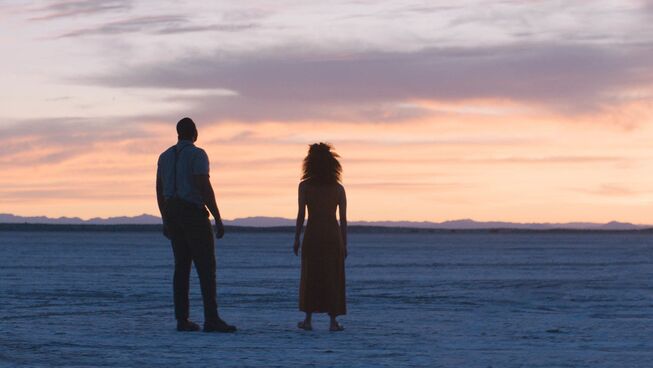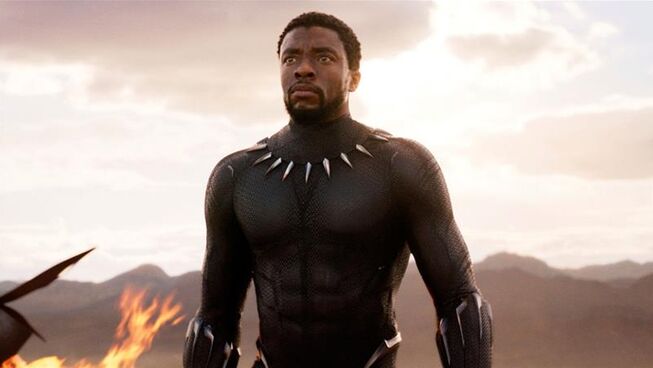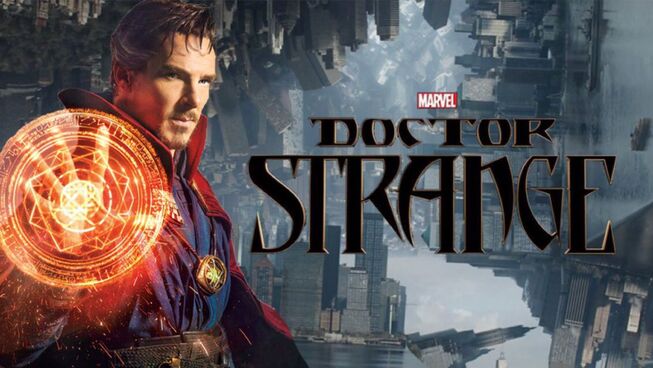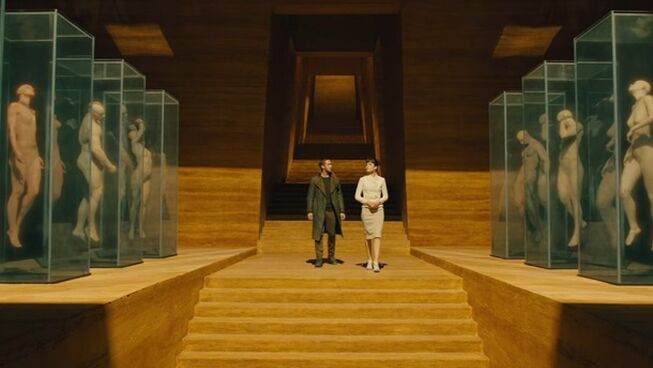
4 out of 5 stars
As you leave the cinema after watching a film like Nine Days, it has the potential to polarise everything that you believe. Even if someone is willing to join the journey and buy into the concept of an arbiter of souls, Edson Oda's film provides no obvious or satisfying answers. On the other hand, if audiences are willing to move past the feeble theological elements and see this as an extended character play with stunning visuals, this may deliver a surprising level of entertainment.
On an indiscernible desert plain in a classic one-story home, Will (Winston Duke) watches people's lives from their point of view (POV) on antique televisions. His role is to document their days and record each response on VHS tapes as they move through existence on Earth. Unable to do anything about their decisions or circumstances, this observer of life still becomes vested in all they do as they travel through the years. Until one day, one of his subjects tragically and unexpectedly loses her life, which leaves Will stunned with grief and disbelief. Despite this abrupt emotional situation, he must now prepare for other unborn souls to arrive at his house who wish to take the vacancy left by his former ward.
One thing that can be said for anyone willing to engage with this film is that this concept will rub up against every theological and philosophical belief many hold dear. Suppose one goes into this with any preconceived notions that are the basis for any truth. In that case, this screenplay will cause discomfort to most individuals' view of the origins of life. Alternatively, those who enjoy delving into the artistry of the human imagination can see that this is a character play ideal for those who could see this as a stage production. In the tradition of Charlie Kaufman-esque films, Nine Days is better placed as a study in humanity’s response to loss, grief, and how to live.
Within this artistic adventure, viewers will experience intensely riveting performances partnered with stunning cinematography. From Winston Duke’s intensity to Zazie Beetz’s (Deadpool 2) free-spirited depiction of Emma to the humorous mentor, Kyo played by Benedict Wong (Doctor Strange), this production contains performances that will reach down deep into the inner recesses of your soul. Each unborn soul manages to embody critical attributes that may qualify them to live in the real world. These roles convey an emotional pilgrimage that moves from the whimsical to confronting within moments of one another. While all the time making you believe that they exist in this state of limbo, hoping for their chance of being born.
These portrayals are complemented by a visual smorgasbord hidden within the dark recesses of this shadowy home built on a desert flat. At the end of many characters' time with Will, they receive one wish before being sent away. As they are given their request, most are provided a stunning presentation to enjoy before the end. Visuals that provide this arthouse film the artistry needed to move things forward and punctuate their time in his presence. This exacerbates the profoundly emotional and visual experience for the audience. Still, it may leave many confused on the ultimate purpose of this bizarre tale. Honestly, it is not clear what Nine Days is meant to convey, except, like many works of art, this may only be appreciated in the eye of the beholder.
REEL DIALOGUE: Can we know how life begins?
Throughout cinematic history, the notion of the origins of life has been the subject of many scripts and screenplays. From Frankenstein to Blade Runner, we can see that some of Hollywood's greatest filmmakers still see the origins story of life as a critical question to be considered. Edson Oda does not engage with creation as much as looking at how human life begins. Even though he never discusses God, this script does confront the issues of human life, death and birth.
Is there any hope in answering the question of the origins of life? Thankfully, we have been given substantial evidence of the existence of the giver of life. Some of these indications can be classified as general revelation. This means that by simply looking out at the beauty of humanity or the magnificent internal systems of the human body, there is an awareness of the creative mind behind our existence. The consistencies of the human form and even the birth of a child can support the argument for a supreme maker. Yet, these generalities do deserve some backup.
In the beginning was the Word, and the Word was with God, and the Word was God. He was in the beginning with God. All things were made through him, and without him was not any thing made that was made. John 1:1-3
This reinforcement can be found in the Bible and is labelled as 'special revelation.' Studied and scrutinised documentation that comes alongside science and nature to prove that there is an architect behind the magnificent creation of humanity.
Where to look for more details: Genesis 1-2, Hebrews 11:3, Revelation 4:11







